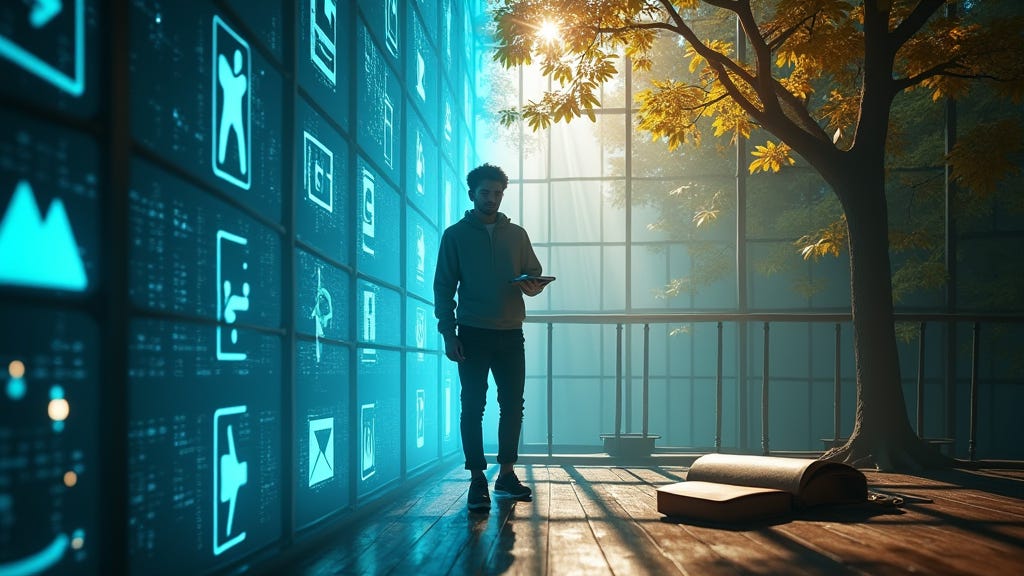When Did Our Spare Time Become a Corporation?
Here's what I can't stop thinking about: when did we all decide that having a side hustle was the new face of freedom?
Here's what I can't stop thinking about: when did we all decide that having a side hustle was the new face of freedom? It feels like everyone around me is on this never-ending quest to be the next big thing in the creator economy. The irony is, wasn't the point of technology to make our lives easier—not turn leisure into labor? We're sold the dream that more followers mean more freedom, but maybe it's just the newest form of the rat race.
At first, launching a side project felt empowering. It was a chance to break free, to express myself and maybe make a little money. At least that's how I saw it when I first started consistently working on my LinkedIn. But over time, it didn’t feel like freedom anymore. It felt like capitalism was just turning anxiety into ambition. It's more than just extra income. It’s about identity, validation, and this looming fear that if you're not building, you're falling behind. In a world that values looks over depth, when do we get to truly live? If every free moment must be turned into money, what time is left for us?
Many people don’t see how the creator economy has changed our view of work. Algorithms now drive us to produce, post, and promote all the time. That's how it felt for me after a few months of "developing" content for LinkedIn. In the past, work focused on stability and survival. Now, the pressure is on to turn your personality into your product. People aren’t chasing passion; they’re scrambling for relevance. Platforms benefit from this unpaid labor, often masked as self-expression. The promise of freedom has been replaced by the expectation of constant engagement.
And it’s not just creators. It’s the startup founder with a newsletter. The mid-level manager building a personal brand. The UX designer growing a coaching side gig. All of us trading nights and weekends for that magical mix of impact, income, and independence. But let’s be honest—how many of us actually feel free?
What no one warns you about is what happens when it starts to work. When the content lands, the followers grow, and the brand "gains traction." That dopamine hit... It's addicting. Suddenly, you don’t just feel inspired to post—you feel obligated. You start optimizing everything: your tone, your hooks, your life. Rest becomes a threat to momentum. Fun starts to feel like missed potential. When success starts to whisper, “Do more,” it’s easy to mistake burnout for ambition.
There’s a quiet kind of guilt that comes with stepping away. I’ve felt it in my chest when I let a week go by without posting. I’ve felt it when I did something I enjoyed and didn’t share it. We’ve internalized this idea that if it isn’t seen, it doesn’t count. That joy has to be documented. That hobbies must evolve into brands. That time off must be justified with productivity language: “recharging,” “resetting,” “investing in myself.” We don’t rest—we rebrand the pause.
Here's the thing: chasing visibility is not the same as building independence. If freedom only exists at the end of a never-ending grind, is it freedom at all? In 2025, try this: enjoy your hobbies without making them a side business or content. Write a poem no one reads. Learn to cook something and tell no one. Go offline and stay there. No audience. No ROI. Just because you can.




